The Latest Healthcare News
Check out our blog to learn more from our team about the latest medical advancements, health tips, and primary care news.
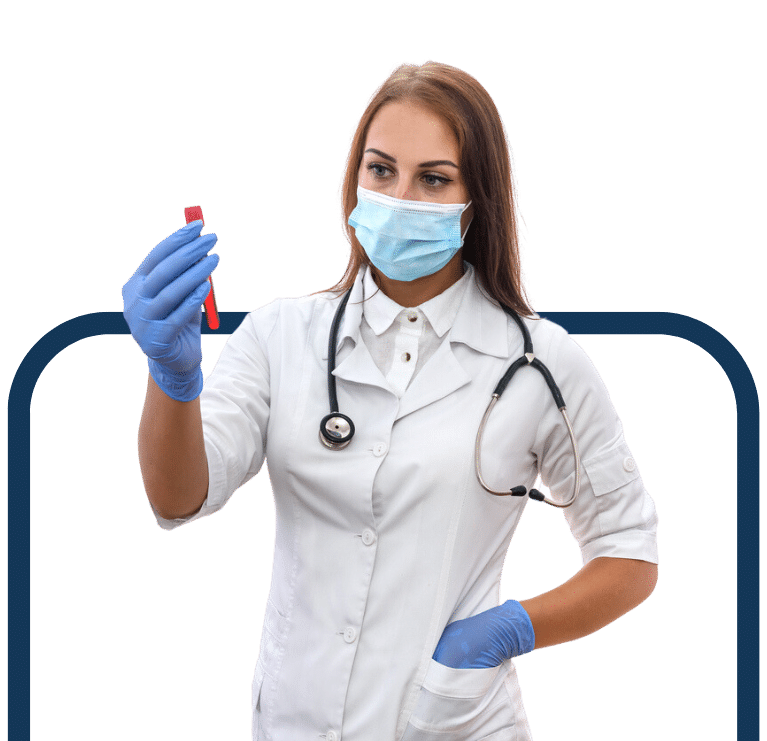
Routine testing for sexually transmitted diseases (STDs) is an important step in safeguarding your sexual health. At AllCare, we offer confidential and comprehensive STD testing services to help you maintain your well-being and make informed decisions about your sexual health.
Regular STD testing is vital for maintaining sexual health and overall well-being. Many sexually transmitted diseases (STDs) can be asymptomatic, meaning you may have an infection without experiencing noticeable signs or symptoms. Testing allows for early identification of infections, enabling timely intervention and treatment to prevent the spread of STDs to partners and minimize the risk of complications that require immediate care.
Our experienced healthcare professionals provide a supportive and non-judgmental environment for discussing your sexual health concerns and conducting the necessary tests. We offer confidential testing to ensure your privacy and deliver accurate results promptly. Our team will provide guidance and information on safe sexual practices, risk reduction strategies, and available treatment options if needed. With AllCare, you can trust that your sexual health is in caring and capable hands.
Yes. Our clinics offer immediate care services and are fully equipped to test for common STDs, provide results within a week, and offer STD treatment or referrals when necessary. When you visit an immediate care facility for STD testing, the process usually begins with a brief consultation with a healthcare provider. During this time, the provider will ask about your sexual history, symptoms, and any potential risk factors. This helps determine which tests you may need. A common STD testing appointment could include the following:
You’ll receive treatment options, such as medications or antivirals. Follow-up care and referrals to specialists may be recommended.
Regular screenings may be advised based on your risk. Keep practicing safe sex and get routine tests if sexually active.
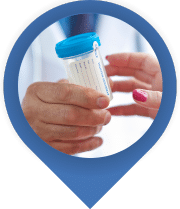
Chlamydia and gonorrhea are common bacterial infections. Testing typically involves urine samples or swabs from the genital area. Early testing is crucial to prevent complications like infertility.
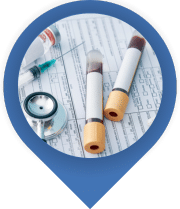
Syphilis is a bacterial infection that progresses in stages. A blood test can detect Treponema pallidum, the bacteria responsible for the infection.
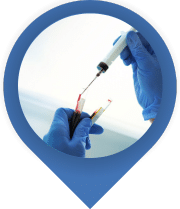
HIV testing involves a blood test to detect HIV antibodies or the virus itself. Early detection is crucial for beginning antiretroviral therapy (ART) to manage the condition.
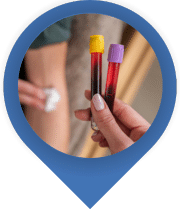
Hepatitis B and C are liver infections that can lead to serious liver damage. Blood tests detect these viruses early, helping prevent complications.

Herpes simplex virus (HSV) causes oral and genital herpes. Testing involves blood tests or swabs from affected areas to detect HSV-1 and HSV-2.
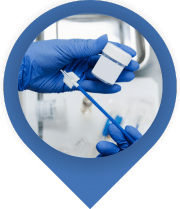
Human papillomavirus (HPV) testing involves a cervical swab or sample from the genital areas to detect high-risk HPV strains linked to cervical cancer.

Knowing when to get an STD test is crucial for safeguarding your sexual health. Remember, annual std testing is important even if you do not have any symptoms, as some STDs can be asymptomatic. Here are some situations in which you should consider getting an STD test:
Please note: We offer PrEP (pre-exposure prophylaxis) services for high-risk individuals as part of our STD test options. Book an appointment today to learn more about how PrEP can help prevent the transmission of HIV.
Below is a STI screening timetable on how often to get tested for each common STD, along with recommendations for those at higher risk.
| STD Type | Testing Frequency | Recommended for |
|---|---|---|
| Chlamydia & Gonorrhea Testing | Annually for sexually active individuals under 25, more frequently for higher-risk individuals (every 3-6 months) | Sexually active individuals, especially those with multiple partners or inconsistent protection |
| HIV Testing | Annually for sexually active individuals, or more often for higher-risk individuals (every 3-6 months) | Sexually active individuals not using protection, or those at higher risk of HIV exposure |
| Syphilis Testing | Annually for sexually active individuals, or more frequently if at higher risk | Anyone with new or multiple partners, or those who have unprotected sex |
| Herpes (HSV-1 & HSV-2) Testing | As needed , especially if showing symptoms or known exposure | Individuals with visible symptoms or potential exposure to HSV-1 or HSV-2 (oral or genital herpes) |
| Hepatitis B & C Testing | Annually or more frequently for individuals at high risk (e.g., IV drug users) | Sexually active individuals with multiple partners or unprotected sex, as well as those at risk for bloodborne transmission |
| HPV Testing | Every 3 years for women over 21, as recommended for men with symptoms | All sexually active individuals, particularly those who may be at higher risk for HPV-related health issues |

Experience the convenience of telehealth appointments at AllCare. Our telemedicine services are designed to provide you with seamless access to healthcare without the need to leave your home. With our online telehealth services currently available to individuals located in Virginia, Maryland, and Washington, D.C., you can connect with our experienced immediate and primary care physicians via secure video calls.
At AllCare, we are expanding our virtual healthcare access to all services previously offered in person. This includes:
The time it takes to receive your STD test results depends on the type of test you undergo:
During your appointment, your healthcare provider will inform you of the expected timeline for your specific test. Your healthcare provider can guide you on how to proceed if you need your results sooner or have questions.
STD tests are generally accurate, but some factors can affect results:
Yes, your privacy is a top priority. All STD test results are kept strictly confidential and are protected by law under HIPAA (Health Insurance Portability and Accountability Act). Your personal and medical information will not be shared without your consent. When you get tested for STDs, your healthcare provider will make sure that all procedures are conducted discreetly and that your results are accessible only to you and any medical professionals you authorize. If you have any concerns about confidentiality, please discuss them with your healthcare provider before your test.
Most STD tests do not require any fasting or special preparations. However, our healthcare professionals will provide you with specific instructions, if necessary, before your appointment.
Yes, you can get tested for multiple STDs in a single visit. Comprehensive testing panels allow for simultaneous screening of several common infections, including:
This approach is convenient and efficient, saving you time compared to scheduling multiple separate tests. Your healthcare provider will assess your symptoms, risk factors, and medical history to recommend the most appropriate testing options for your needs. Be sure to discuss any concerns or risk factors with your provider during your visit.
The cost of STD testing can vary depending on the specific tests conducted and your insurance coverage. We accept most insurance plans, and our staff can provide you with detailed information about the cost and payment options during your appointment.
At AllCare, we’re proud to deliver exceptional primary and immediate care to residents across Virginia, Maryland, and Washington, D.C. From bustling city centers to serene suburban neighborhoods, our clinics are strategically placed for your convenience and care. Experience top-tier STD testing and treatment in your community with AllCare, where your health is our priority.
Check out our blog to learn more from our team about the latest medical advancements, health tips, and primary care news.
Seasonal Affective Disorder (SAD) represents a significant mental health concern affecting approximately 5% of adults in the United States. This […]
Read More >Mammograms save lives. Early detection of breast cancer through proper screening will give a patient a remarkable 99% five-year survival […]
Read More >Most people are aware that diet, exercise, and genetics affect cholesterol levels. But can stress raise your cholesterol? The answer […]
Read More >Our related healthcare services extend beyond immediate care to include preventive care such as routine physical exams, chronic disease management for conditions like diabetes, and specialty care referrals for more complex health issues.